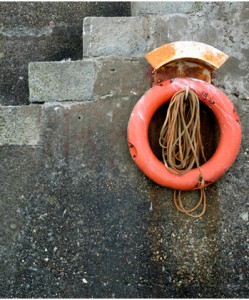 If drinking is causing enough problems for the family to consider intervention, then things are probably bad enough to motivate some action on the alcoholic person’s part.
If drinking is causing enough problems for the family to consider intervention, then things are probably bad enough to motivate some action on the alcoholic person’s part.
So why hasn’t it?
Because there’s something in the way.
Actually, three obstacles. Or rather, three broad categories of obstacles that are found to one degree or another in almost every case.
- First, we have the alcoholic’s psychological defenses. You’ve heard about the big one, denial. The alcoholic person doesn’t perceive the severity of the problem, and therefore lacks motivation to do anything. If you don’t see a problem, then why change? But there are others – rationalization, externalizing, minimizing, intellectualizing – that play every bit as big a role in resistance.
- Second, there’s the stigma attached to alcoholism. Even in our enlightened times, people consider alcoholism a weakness rather than an illness. When your doctor informs you that you’re diabetic, you ask for help. But when he tells you you’re an alcoholic, you ask for another doctor.
- Third, change is ordinarily motivated by trouble. And not just a little trouble, either. It usually takes quite a while for an alcoholic person to arrive at the realization that something is seriously wrong. Here comes the tricky part: people with alcoholism successfully avoid the consequences of their drinking for so long because other people help them. Including, sometimes, the people who wish they would get help.
That’s called enabling, or sometimes rescuing. Others are frightened of the possible consequences of alcoholism, so they rescue the alcoholic person from those consequences. That reduces his awareness of the problem, and his motivation to change.
You’ve heard the old saw about the person with alcoholism having to hit bottom before he wants to change. But that takes so long in part because the folks that love him won’t allow it.
Think about it: why should an alcoholic person change a behavior so longstanding, so ingrained, unless he can’t find another way out?
Successful intervention – the sort that launches the alcoholic person into treatment with the right attitude of openness and willingness to change – requires that we address all three of these obstacles: psychological defenses, stigma, and enabling/ rescuing behavior.
We needn’t eliminate these barriers entirely, but we do need to overcome them if we’re going to convince an alcoholic person to accept the help he desperately needs.
Introduction to Intervention -More from this series:
- Introduction to Intervention: You Can Do It
- Why Alcoholic People Resist Help
- Countering Denial
- The Alcoholic Person's Friend
- No Warm Reception
- The Defenses We'll Face








